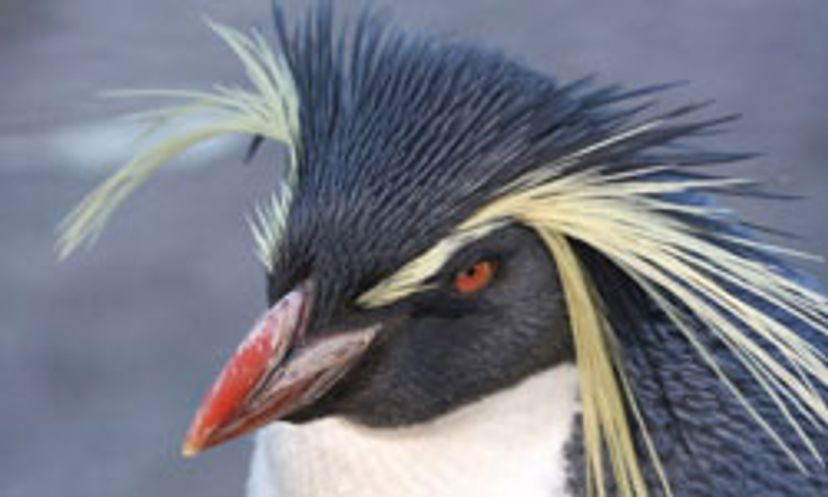The Ultimate Penguin Quiz
Estimated Completion Time 2 min
"
Image: iStockphoto.com/Krzysztof Renkaw
About This Quiz
Penguins are creatures you see in the zoo or in nature movies, unless you happen to have been part of an expedition to the North Pole. Take this quiz to learn a little more about these flightless birds.
START QUIZ
How many species of penguins are there?
There are 17 species of penguins.
How different are the various species?
Those from warmer climates spend more time in the water.
Males are larger than females.
They differ in size and the markings on heads and necks.
They differ in size and the markings on heads and necks, but otherwise are similar in appearance.
What is the smallest penguin?
The little blue penguin is the smallest, reaching a height of 12 inches (30 cm).
How tall is the largest penguin?
The largest penguin reaches 39 inches (1 m).
How did the jackass penguin get its name?
because it's not too bright
because of its stubborn nature
because of its loud braying call
It received that name because of its loud braying call.
What is special about the rockhopper penguin?
They hop from place to place instead of walking.
They hop up steep, rocky slopes to their nests above sea level.
They protect their nests by rolling rocks at their predators.
Since they nest about 500 feet (150 meters) above sea level, they have to hop up steep rocky slopes.
Why are these nests located above sea level?
to keep them safe from leopard seals
to keep them safe from changing tides
the atmosphere is better for the eggs
These nests are located high above sea level to keep them safe from predator leopard seals, which are not good climbers.
What are distinguishing features of rockhoppers?
large feet to facilitate rock hopping and a short tail for balance
grey-colored to blend in with the rocks
orange-red bill, a yellow crest and red eyes
The rockhopper has a bright orange-red bill, a yellow crest and red eyes.
Where are the Galápagos penguin to be found?
They are found in the Galápagos Islands, on the Equator.
Why is this species endangered?
pollution of drinking water
intensive hunting for their skins
human encroachment on its food supply and hunting grounds
Human encroachment on its food supply and hunting grounds endangers these penguins
How do penguins often move across ice?
glide across the ice on their stomachs
glide on their feet like a skater
waddle sideways for greater stability
They often throw themselves on their stomachs and glide across the ice.
How do penguins swim in the water?
Float on their bellies and contort their bodies to slither through the water.
They swim with their wings while using feet as rudders.
They propel themselves with their feet.
They use their flipperlike wings to swim while guiding themselves with their feet.
At what speed can some penguins swim?
20 miles per hour (32km/h)
30 miles per hour (48km/h)
40 miles per hour (64km/h)
Some can swim at more than 20 miles per hour (32km/h).
To what depths can an emperor penguin dive?
The emperor penguin dives to more than 1,700 feet (518 m).
When do penguins eat?
only when they are at sea
They eat only when they are at sea and their diet consists of fish, squid and shrimps.
Which penguin usually incubates the eggs?
The male and female usually take turns incubating.
What does an incubating penguin eat?
whatever the partner brings it
The incubating penguin does not eat.
What makes the emperor penguin's breeding habits unique?
female incubates the egg for the entire period
male and female incubate the egg together
male incubates the egg for the entire period
A few hours after she lays it, the female turns the egg over to the male, who incubates it for a two-month period.
How does the emperor penguin incubate its egg in the Antarctic?
It doesn't build a nest, but incubates the egg by carrying it on its foot, protected by a fold of skin.
Can a penguin breathe underwater?
Penguins have lungs and lack gills, which means they need to surface to breathe.
You Got:
/20
Share on Facebook
Share on Facebook
iStockphoto.com/Krzysztof Renkaw
